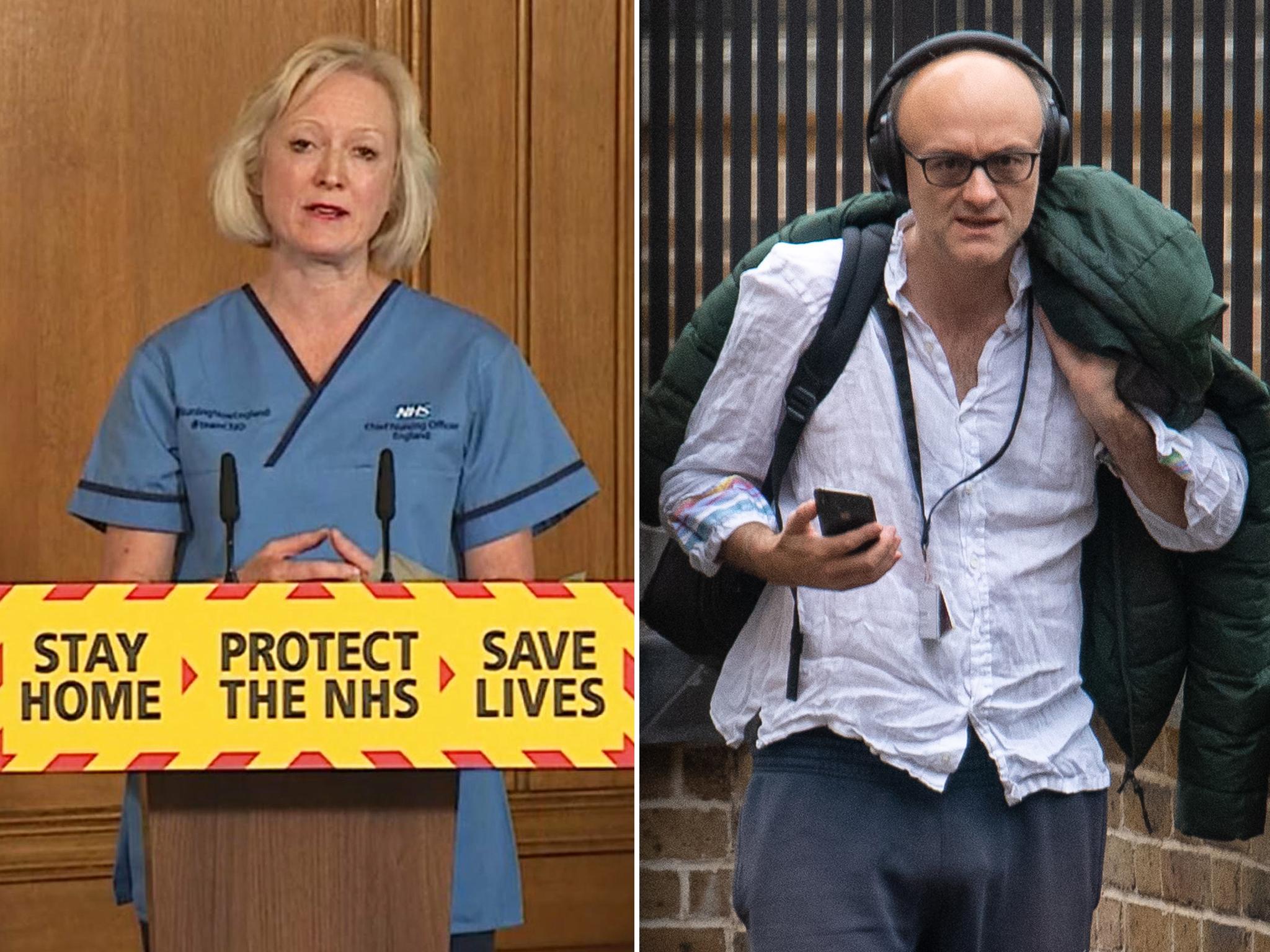
England’s chief nurse was dropped from one of Downing Street‘s daily coronavirus briefings after refusing to publicly back Dominic Cummings, senior sources have told The Independent.
As Boris Johnson’s chief aide was engulfed in scandal over his trips to Durham and Barnard Castle during lockdown, Ruth May had been due to appear alongside health secretary Matt Hancock in the press conference.
But, in practice questions hours before the briefing, she was asked about Mr Cummings and, after failing to give support to the prime minister’s chief adviser, she was immediately dropped from the press conference, according to senior NHS sources.
Download the new Independent Premium app
Sharing the full story, not just the headlines
Instead the health secretary had to present the slides on Covid-19 himself for the first time, alongside Professor John Newton from Public Health England. The incident, on 1 June, was two days after England’s deputy chief medical officer Jonathan Van-Tam sparked headlines by saying that lockdown rules “apply to all” when asked about Mr Cummings. He has not appeared at the press conferences since 30 May.
A senior NHS source said: “A No 10 spad [special adviser] asked her directly how she would answer the Dominic Cummings question and she refused to play along and told them she would answer the same way as Jonathan Van-Tam. She was dropped immediately from the press briefing.”
Another added: “JVT was the first to publicly push back on TV. Everyone is being asked to support the government positions prior to doing a press conference. If they don’t, they get dropped.
“First it was Dominic Cummings, then easing lockdown and now the R-rate and the two-metre rule.”
Separately, Whitehall officials are critical of what they see as No 10’s grip on the daily briefings and the way the science and health advice is being used.
No 10 has previously touted the briefings – with ministers alongside health and scientific advisers – as an opportunity for the public to get advice directly from the experts on coronavirus. When they began in March, Downing Street said they would focus on informing the public “on how to protect themselves”.
In April, when questions from members of the public were introduced alongside those from journalists, the prime minister’s official spokesman said it was “absolutely right that the public gets the chance to put their questions to the government and its experts”.
Mr Johnson repeatedly insisted that public adherence to lockdown would not be affected by the revelations involving Mr Cummings.
The latest news on Brexit, politics and beyond direct to your inbox
On 28 May, he blocked chief medical officer Chris Whitty and chief scientific adviser Sir Patrick Vallance from answering a media question about the affair, before both men insisted that as civil servants they did not want to be pulled into politics.
The chief nurse was also due to appear at the press conference on 5 June, but did not after being delayed by traffic.
Asked to comment, No 10 said it strongly denied the claims that Ms May had been dropped over her views on Mr Cummings and added that health and scientific advisers would continue to take questions in the briefings. NHS England was also approached for comment.


